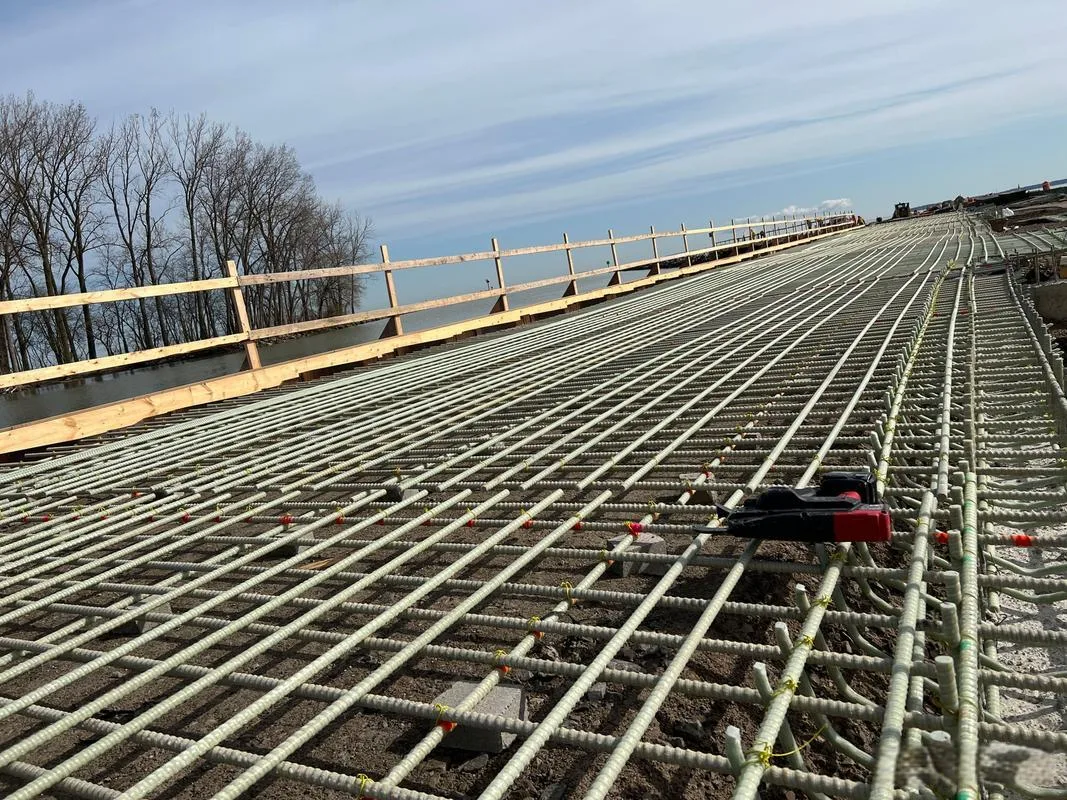Introduction to Fiberglass Rebar
Fiberglass rebar, also known as Glass Fiber Reinforced Polymer (GFRP) rebar, is a composite material used as an alternative to traditional steel reinforcement in concrete structures. Made from continuous glass fibers bound together by a polymer resin, fiberglass rebar is known for its high strength, lightweight nature, and corrosion resistance. These attributes make it an ideal choice for various construction projects where durability and longevity are paramount.

fiberglass rebar suppliers
Benefits of Fiberglass Rebar
Fiberglass rebar offers several advantages:
- Corrosion Resistance: Unlike steel, fiberglass rebar doesn’t rust, making it perfect for marine and chemical environments.
- Lightweight: It’s significantly lighter than steel, reducing transportation and handling costs.
- High Tensile Strength: Provides greater strength-to-weight ratio compared to steel.
- Non-Conductive: Ideal for structures requiring electrical insulation.
These benefits have made fiberglass rebar a preferred choice in modern construction.
Applications of Fiberglass Rebar
Fiberglass rebar is extensively used in:
- Infrastructure Projects: Bridges, highways, and tunnels.
- Marine Structures: Ports, seawalls, and piers.
- Residential & Commercial Buildings: Foundations, walls, and floors.
- Energy Sector: Power plants and renewable energy installations.
Its versatility ensures its application across various sectors requiring durability.
Global Market for Fiberglass Rebar
The demand for fiberglass rebar is witnessing significant growth globally due to its superior properties and the need for sustainable building materials. The Asia-Pacific region is leading the market, followed by North America and Europe. Challenges like high initial costs and lack of awareness are gradually being overcome with technological advancements and increased adoption in large-scale projects.
Criteria for Choosing a Supplier
When selecting a supplier, consider the following:
- Product Quality: Look for ISO certifications and compliance with ASTM standards.
- Pricing: Competitive pricing without compromising on quality.
- Delivery Reliability: Ensure timely delivery and robust logistics support.
- Customer Support: Responsive and knowledgeable support team.
Evaluating these factors ensures a hassle-free procurement experience.
Leading Fiberglass Rebar Suppliers Worldwide
Several manufacturers and suppliers dominate the fiberglass rebar market, including:
- Pultrall Inc. (Canada): A pioneer in GFRP rebar production.
- Wellco Industries(USA): Known for innovative and high-quality solutions.
- Sireg Geotech (Italy): Specializes in geotechnical and structural applications.
Each supplier offers unique strengths and regional advantages.
Fiberglass Rebar Suppliers in the USA
Prominent U.S.-based suppliers include:
- Strongwell Corporation: A leader in pultrusion technology.
- Wellco Wholesale: Focused on high-strength products.
- Marshall Composite Technologies: Offers a wide range of customized rebar solutions.
These companies are known for their innovation and commitment to quality.
Suppliers in Europe
European suppliers like Sireg Geotech and Technobasalt-Invest adhere to strict EU standards, ensuring high-quality products suitable for the region’s unique climatic and structural needs.
Suppliers in Asia-Pacific
Asia-Pacific has emerged as a significant hub for fiberglass rebar production. Companies such as Unicomposite in China and Anarva Reinforcement in India are major players catering to global demands.
Customized Fiberglass Rebar Solutions
Many suppliers offer bespoke solutions to meet specific project requirements. This includes variations in diameter, strength, and resin type, ensuring optimal performance in unique applications.
Pricing Trends and Cost Analysis
The cost of fiberglass rebar varies based on factors like raw material prices, transportation, and regional demand. While initially more expensive than steel, its long-term benefits often result in cost savings over the lifecycle of a project.
Quality Standards and Certifications
Look for certifications such as:
- ASTM D7957: Standard for GFRP rebar in concrete.
- ISO 9001: Quality management compliance.
- CE Marking: For products in European markets.
Adherence to these standards guarantees performance and reliability.
Sustainable and Eco-Friendly Practices
Fiberglass rebar manufacturers are increasingly adopting eco-friendly practices, including recycling waste materials and using renewable energy in production. Its lightweight nature also reduces transportation emissions.
Common Challenges When Dealing with Suppliers
- Delayed Deliveries: Mitigated by clear communication and contractual agreements.
- Quality Discrepancies: Regular inspections and certifications help ensure quality.
Working with reputable suppliers minimizes such issues.
FAQs About Fiberglass Rebar Suppliers
- What are the leading fiberglass rebar brands?
Brands like Pultrall, Strongwell, and Aslan FRP are industry leaders. - How is fiberglass rebar priced?
Pricing depends on the diameter, grade, and supplier location but is generally higher than steel initially. - Can fiberglass rebar be customized?
Yes, many suppliers offer custom diameters, lengths, and resin types. - Is fiberglass rebar suitable for all climates?
Absolutely. Its corrosion resistance makes it ideal for harsh environments. - What standards should suppliers comply with?
Look for ASTM D7957 and ISO 9001 certifications. - How do I ensure timely delivery from a supplier?
Select a supplier with a proven track record and robust logistics network.




























